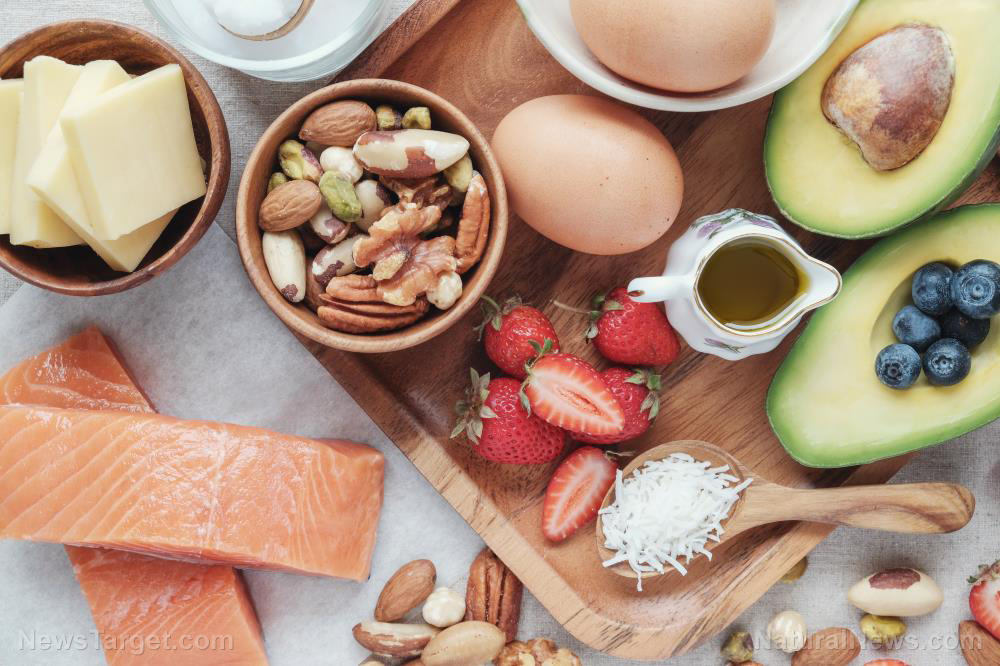
Advertisement
If you’re on a ketogenic or “keto” diet, you may have heard of exogenous ketones. In simple terms, these are ketones that are not made by your own body. They are dietary supplements intended to help dieters get into ketosis, the metabolic state where your body burns fats for energy instead of glucose.
This fat-burning process produces ketones that become your body’s dominant fuel source. With ketosis, you’re literally burning fat for energy.
Most people on a keto diet achieve ketosis within days, provided that they adhere to their low-carb, high-fat diet. But staying in ketosis is a real pain in the neck. As experts noted, “Maintaining ketosis can be difficult, as consumption of even a small quantity of carbohydrates or excess protein can rapidly inhibit ketogenesis.”
While you can always re-enter ketosis through diet, getting back on track takes days and requires grueling work. That’s hardly fair considering how easy it is to break ketosis. So someone has come up with a solution: exogenous ketones.
Do exogenous ketones work in achieving ketosis quickly?
Most exogenous ketone supplements come in the form of salts and esters. Ketone salts consist of ketone bodies bound to minerals like potassium and calcium. They come in powder form. Meanwhile, ketone esters use a compound called ester and come in a liquid. While they differ in many ways, both promise to put your body in ketosis in as quickly as 30 minutes. But how true is that promise?
Dr. Vincent Pedre, a New York City-based internist, said that exogenous ketones can potentially increase the primary ketone, called D-beta-hydroxybutyrate or BHB, without strictly adhering to a keto diet. Supposedly, your body still prefers ketones even if you take exogenous ketones with some carbs, according to Pedre.
But take that with a grain of salt. As Pedre pointed out, studies about exogenous ketones are few and far between. But the ones that we do have hold promise.
One animal study showed that exogenous ketone drinks can raise ketone levels without restricting carbs. In the study, mice on the supplements gained significantly less weight than those who were not. Meanwhile, a review of three human studies showed that ketone salts and esters keep your blood ketone levels high for hours. The review authors concluded that exogenous ketone drinks are an “efficacious way to achieve ketosis.”
Should you try exogenous ketones?
Whether or not you should try exogenous ketones depends on many things. These supplements are not cheap – a two-week supply can cost $50 or more. They also taste bad. If the nasty tang puts you off, you’re better off spending your money on nutritious foods.
And because ketone salts are bound to sodium, which drives up your blood pressure, they are dangerous to people with hypertension. The supplements can also tear up your gut and send you running for the bathroom.
But if you’re intent on achieving ketosis fast, then these supplements can give you a boost. You can also try them if you’re an athlete in need of carbs, or you’re tempted to eat carbs but fear breaking that hard-earned metabolic state. Besides helping you achieve ketosis, exogenous ketones can promote weight loss, keep you energized, enhance your performance and more.
How to achieve optimal ketosis
Keep in mind that you can’t just gorge on carbs and expect to get into ketosis by taking exogenous ketones. Achieving that state requires effort regardless of whether you’re taking supplements. Check out the following strategies to get into optimal ketosis:
- Choose healthy fat sources. A ketogenic diet emphasizes eating more fats. But that doesn’t give you the pass to feast on unhealthy foods like conventionally raised meats and dairy. To reap the full benefits of a keto diet, you need to eat healthy high-fat foods like fatty fish and nuts.
- Cycle in and out of keto. The urge to eat carb-rich foods like sweet potato and quinoa is harder to resist on some days. A cyclical keto diet lets you enjoy those foods once or twice a week while devoting the rest to achieving ketosis.
- Do fasting. Fasting is a great addition to your diet plan. It gives your digestive system a break, lowers inflammation, breaks weight-loss plateaus and helps maintains your ideal weight, among many other things.
- Maintain healthy lifestyle habits. The key to achieving optimal ketosis is to practice a healthy lifestyle. Sleep seven to nine hours, exercise regularly, meditate — all the good stuff.
- Pay attention to your gut. People on a keto diet sometimes neglect their gut by reducing their consumption of non-starchy veggies. But your gut is important for overall health. A poor digestive system affects not only digestion but also your immune system, brain, hormones, weight and many more.
Like all diets, a keto diet is freighted with challenges that make strict adherence so difficult. Thankfully, supplements like exogenous ketones work to help you achieve ketosis. But do not confine yourself to taking those supplements. Exercise, incorporate fasting and eat a variety of healthy foods for optimal ketosis.
Sources:
Advertisements







